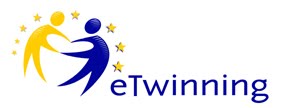Good manners must be part of
each child's educational program. They help the child develop self-esteem.
The way the child speaks and behaves have a direct effect on any relationship.
Manners are the greeting card of each individual
in society, seen through the gestures in various life situations: at table, on
the street, in concert/theater halls, at home, at school, etc. There is a set
of rules for each situation.
The themes selected for this
project come from the basic needs of a child and can be applied in practice.
Students will be involved in
teamwork and games as learning activities. Parents will be involved in our
activities, too.
Teachers will involve children
and parents in activities that simulate real-life situations.
We want to have students who
know how to behave well in their future life. They will learn how to dress
properly, be polite, respect self and others, conquer their emotions and impulses,
become trustworthy and honorable, establish and respect their own moral principles,
become responsible and diplomatic.
Aims:
Students will learn to:
·
behave in a civilized manner in various life
situations;
·
practice and respect social behavior rules;
·
learn to work as a team;
·
use proper language in daily communication;
·
learn techniques of communication and cooperation
in a group;
·
improve their self-esteem
·
develop positive attitude towards others and environment;
·
improve communication in mother tongue and
foreign languages and ICT skills.
Parents will be involved in
their children's activities and encourage them to respect the social rules.
Students and their parents
will share experiences.
Teachers will exchange best
practices with their peers from the partner schools.
Partners:
Founders:
Daniela Buda, Scoala Gimnaziala
"Vasile Alecsandri" Baia Mare, Romania
Ketevan
Kobakhidze, LEPL Tbilisi N 207 Public School, Georgia
Partners:
ROMANIA
Adina Cosma, Scoala Gimnaziala
"Vasile Alecsandri" Baia Mare, Romania
Laura Cont, Scoala Gimnaziala
"Vasile Alecsandri" Baia Mare, Romania
Ferestean Tania, Scoala Gimnaziala
"Vasile Alecsandri" Baia Mare, Romania
Raluca Salajan, Scoala Gimnaziala
"Vasile Alecsandri" Baia Mare, Romania
Marcela Zaplac, Scoala Gimnaziala
"Vasile Alecsandri" Baia Mare, Romania
Nicoleta Onea, Scoala Gimnaziala "Vasile Alecsandri" Baia Mare, Romania
Anca Man, Scoala Gimnaziala "Vasile Alecsandri" Baia Mare, Romania
Nicoleta Onea, Scoala Gimnaziala "Vasile Alecsandri" Baia Mare, Romania
Anca Man, Scoala Gimnaziala "Vasile Alecsandri" Baia Mare, Romania
Viorica Costenar, Scoala Gimnaziala "Vasile Alecsandri" Baia Mare, Romania
Irina Somcutean, Scoala Gimnaziala Recea, Maramures, Romania
Veronica Cornelia Onet, Scoala Gimnaziala Recea, Maramures, Romania
Target group: students aged 6-14 from partner schoolsVeronica Cornelia Onet, Scoala Gimnaziala Recea, Maramures, Romania
TURKEY:
Mustafa
Izbulan, Milli Egemenlik Ortaokulu, Turkey
Koray Biber, Seviye Okulları Çakırlar, Ankara Turkey
UKRAINE:
INNA BAYOVA, Kamianske school № 19, Ukraine
POLAND:
Maria Uryś, Szkoła Podstawowa nr 3 z Oddziałami Integracyjnymi w Lubsku, Poland
Afganistan
Abdul Wakeel Khan, Afganistan International School (AIS), Kabul, Afganistan
Koray Biber, Seviye Okulları Çakırlar, Ankara Turkey
UKRAINE:
INNA BAYOVA, Kamianske school № 19, Ukraine
POLAND:
Maria Uryś, Szkoła Podstawowa nr 3 z Oddziałami Integracyjnymi w Lubsku, Poland
Afganistan
Abdul Wakeel Khan, Afganistan International School (AIS), Kabul, Afganistan
Work
process
Communication between partners
will be held in English via Twin space, project blog, Facebook group.
Activities will be held in
schools/other locations.
Themes:
Ø Good
manners - way to connect to other people (definition, presentation, examples).
Ø Good
manners-first life lesson.
Ø You
are what you say-Magic words.
Ø Good
manners in real-life situations:
-
in the peers' group;
-
at school;
-
at the shop;
-
at table;
-
in the city;
-
in nature;
-
on a visit;
-
in a restaurant;
-
at the library;
-
in the school secretary's office.
Activities can be held after
school.
We can organize online
video-conferences with our partners so our students can meet their peers and exchange
greetings and experiences using English to communicate.
We can organize visits to
various places to practice the behavior rules the students learn.
The Romanian team will make
the project blog and all teachers will post articles on it, presenting their
teams' activities, as well as feedback from the participants.
Local community
representatives can be involved in the project.
Expected
results
Students will improve their self-esteem
and communication in foreign languages & ICT skills, as well as their
behavior in various contexts.
Parents will become aware of
the importance of supporting their children's proper behavior in various life
situations.
Partner teachers will
contribute with articles, photos and feedback to disseminate the project on the
blog & Twinspace.
Teachers and students will
exchange best practices with their peers from the partner schools.
Teachers will improve their
foreign languages and ICT skills.
We will share our results with
teachers of other subjects, so they can use our experiences with their
students.
We can invite teachers and
students from countries outside the EU to join our project via the project blog
and Facebook group.
Articles will be written in
English and mother tongue so we can better disseminate our experiences in local
communities.
Representatives from local
communities can be involved in the project activities.
End products:
- Power
Point presentations
- the
project Blog: https://goodmannersinthe21stcentury.blogspot.com/
- photos, etc.
The Evaluaion of the activities will
be made based on the materials made by the students until the end of the school
year, on the photos taken during activities and on the project blog, which is our
activity diary.
Disemination will be made on the
eTwinning platform, the project blog, the Facebook teachers’ group and on the partner
schools’ websites.

No comments:
Post a Comment